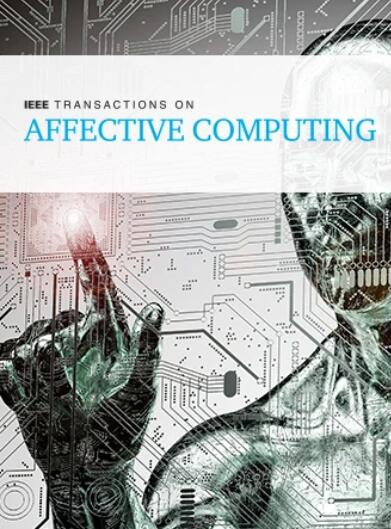多模态自监督架构在日常生活情感识别中的应用
IF 9.8
2区 计算机科学
Q1 COMPUTER SCIENCE, ARTIFICIAL INTELLIGENCE
引用次数: 0
摘要
认识日常生活中的影响(包括但不限于情绪、情绪和压力的总称)对于保持心理健康和预防长期健康问题至关重要。智能手环等可穿戴设备可以收集心率变异性、皮肤电活动、皮肤温度和加速度等生理数据,通过机器学习模型进行日常生活影响监测。然而,在情感计算研究中,准确地标记这些数据以进行模型评估是具有挑战性的,因为个人在日常生活中经常提供主观的、不准确的或不完整的标签。本研究介绍了自监督学习架构对多模态日常生活压力和情绪识别任务的适应性,重点介绍了自我表征和对比学习方法。通过利用未标记的多模态生理信号,我们的目标是减轻对大量标记数据的需求,提高模型的可泛化性。我们的研究表明,自我监督学习可以在没有明确标签的情况下从生理数据中有效地学习有意义的表征,为开发可在动态和不受控制的环境中运行的鲁棒情感识别系统提供了一种有前途的方法。这项工作在识别野外影响方面取得了重大进展,对个性化心理健康支持和及时干预具有潜在意义。本文章由计算机程序翻译,如有差异,请以英文原文为准。
Application of Multimodal Self-Supervised Architectures for Daily Life Affect Recognition
The recognition of affects (an umbrella term including but not limited to emotions, mood, and stress) in daily life is crucial for maintaining mental well-being and preventing long-term health issues. Wearable devices, such as smart bands, can collect physiological data including heart rate variability, electrodermal activity, skin temperature, and acceleration facilitating daily life affect monitoring via machine learning models. However, accurately labeling this data for model evaluation is challenging in affective computing research, as individuals often provide subjective, inaccurate, or incomplete labels in their daily lives. This study introduces the adaptation of self-supervised learning architectures for multimodal daily life stress and emotion recognition tasks, focusing on self-representation and contrastive learning methods. By leveraging unlabeled multimodal physiological signals, we aim to alleviate the need for extensive labeled data and enhance model generalizability. Our research demonstrates that self-supervised learning can effectively learn meaningful representations from physiological data without explicit labels, offering a promising approach for developing robust affect recognition systems that can operate in dynamic and uncontrolled environments. This work represents a significant improvement in recognizing affects in the wild, with potential implications for personalized mental health support and timely interventions.
求助全文
通过发布文献求助,成功后即可免费获取论文全文。
去求助
来源期刊

IEEE Transactions on Affective Computing
COMPUTER SCIENCE, ARTIFICIAL INTELLIGENCE-COMPUTER SCIENCE, CYBERNETICS
CiteScore
15.00
自引率
6.20%
发文量
174
期刊介绍:
The IEEE Transactions on Affective Computing is an international and interdisciplinary journal. Its primary goal is to share research findings on the development of systems capable of recognizing, interpreting, and simulating human emotions and related affective phenomena. The journal publishes original research on the underlying principles and theories that explain how and why affective factors shape human-technology interactions. It also focuses on how techniques for sensing and simulating affect can enhance our understanding of human emotions and processes. Additionally, the journal explores the design, implementation, and evaluation of systems that prioritize the consideration of affect in their usability. We also welcome surveys of existing work that provide new perspectives on the historical and future directions of this field.
 求助内容:
求助内容: 应助结果提醒方式:
应助结果提醒方式:


